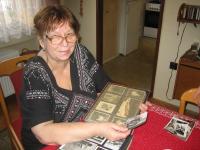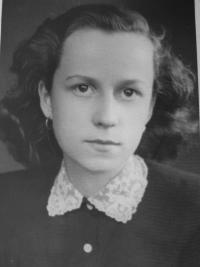My girl, you’ve really grown up here?

Stáhnout obrázek
She was born on April 7, 1937 in Uzhhorod. Her mother came from a wealthy Hungarian-German family of the mayor of Uzhhorod. Her father, who was of Rusyn origin, was a Greek Catholic priest. She spent the first nine years of her life in the village of Kosťová Pasteľ in Carpathian Ruthenia. In 1946 the family fled the Soviets to eastern Slovakia to the village of Ruský Hrabovec, where they then lived for several years. Her native languages are Rusyn and Hungarian. When she attended elementary school, she was taught partly in Rusyn and partly in the Russian language: she attended three grades in Carpathian Ruthenia, and then she continued with the following five grades in Slovakia. She also learnt the Slovak language when she was in the ninth grade Then she began studying the secondary industrial school of construction in Prešov. Her father was however imprisoned at that time, and he would be released only under the condition that the family would relocate to the Czech region. In 1951 the family therefore moved to Ústí nad Labem. She completed her secondary education - in Czech - in Děčín. Since 1951 she has been living in Ústí nad Labem, where she also married. Her husband had moved to Ústí nad Labem from Nová Paka in the Podkrkonoší (Giant Mountains) region with his parents in 1945. The story of Klára Vacková is very specific among the stories of other „people from the east.“ Her family did not belong to any larger community like those formed by Volhynian Czechs, Romanian Slovaks or Greeks. She actually arrived to the Sudetenland for political reasons -for her father, a priest who refused to deny his faith, the relocation to Sudetenland was a form of exile. The persecution of the Greek Catholic Church in Slovakia, which Klára Vacková talks about, is one of the lesser known chapters in our history, which however holds great significance.

